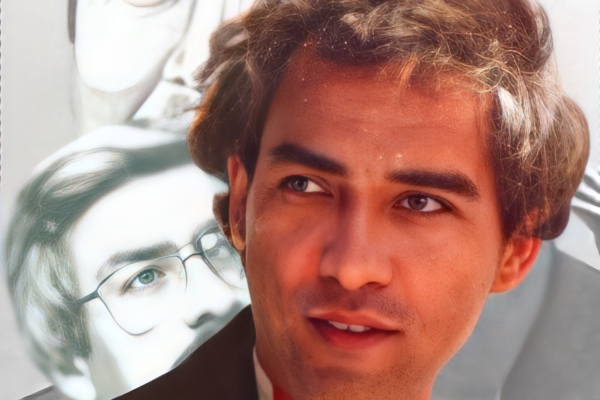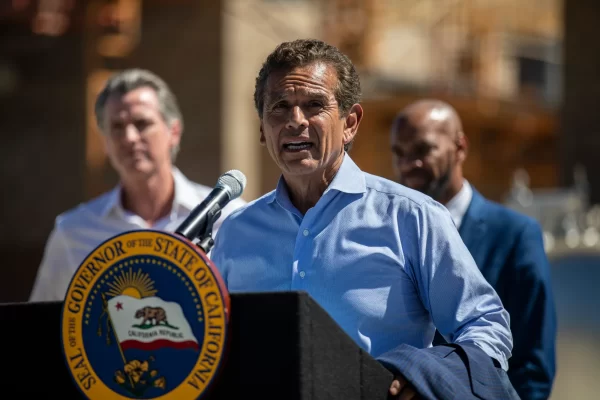Once hailed as the “Hispanic Obama,” Florida Senator Marco Rubio has been appointed by President-elect Trump to serve as Secretary of State, the most prestigious Cabinet position a Latino has ever held in American history and finds himself tasked with playing global chess under a man who prefers Twitter blitzes and swift power moves.
It’s been a long time since the cover of Time magazine asked if Marco Rubio was the “savior” of the Republican Party. More than a decade later, the question isn’t whether he’s the next conservative messiah but if he can navigate the role of Secretary of State under a president who, let’s face it, is not interested in saviors—unless he’s looking in the mirror.
Rubio’s appointment by President-elect Trump to the most prestigious Cabinet position a Latino has ever held is historic. Yet, there’s more than a hint of irony here. Rubio’s bid for the presidency in 2016 crashed and burned as he went head-to-head with Trump, who branded him “Little Marco.” Now, in 2024, Rubio finds himself tasked with playing global chess under a man who prefers Twitter blitzes and swift power moves.

It’s an unexpected twist for Rubio. Remember, back in 2013, he was hailed as “the Hispanic Obama,” someone with a relatable, middle-class story, someone who could deliver a speech not only in English but in Spanish with the ease of a man who knew both languages intimately. Back then, he spoke of the middle class like he was defending it, evoking his parents’ struggles as immigrants. He was poised, committed, and ready to catapult his conservative ideals to a national stage.
But Rubio’s political journey since then has been anything but smooth. There was the infamous water bottle moment during his State of the Union response, a small but humanizing gesture that momentarily made him seem genuine and relatable to many Americans. However, the shine of his “Hispanic savior” narrative didn’t last. Rubio’s path began to look more like Icarus flying too close to the sun than a savior lifting up his party. He failed to reach the White House, found himself derided by Trump, and at times appeared to step out of the national spotlight altogether.

Now, Rubio stands at a critical juncture. Secretary of State is an enormous opportunity and a potent political platform, one that could put him in prime position for a 2028 presidential run if Trump loyalists give him room to maneuver. It’s also a role that comes with immense expectations. Rubio’s instincts are seasoned, but handling diplomacy for a Trump administration will likely mean negotiating policies Rubio himself might not fully endorse. After all, he’s been a critic of Trump’s hardline positions on trade and some elements of foreign policy, which means he’ll be walking a diplomatic tightrope every day.
If Trump indeed pursues his promised “mass deportation” agenda, spearheaded by hardliners like Stephen Miller, Rubio might face some sleepless nights. After all, this is a politician who, despite his more conservative leanings, has shown a sympathetic stance on immigration reform and pathways to citizenship—policies more in line with his own family’s immigrant story. It’s unlikely that Trump selected him for this post because of his views on immigration or diplomacy. No, Trump tapped Rubio because he needs someone competent, someone who can appease Latino voters and who knows how to play the political game. But if Rubio had any visions of reshaping foreign policy as Secretary of State, he’ll have to temper those ideals under Trump’s iron fist.
Yet Rubio’s appointment could signal a potential pivot in Republican strategy. For one, it presents a public face that is, well, far from the Steve Bannon–Miller hardline image. Having Rubio as Secretary of State gives Trump’s administration the veneer of inclusivity and sophistication without Trump having to lift a finger on inclusivity himself. It’s a move that allows Trump to maintain his agenda while softening his image, particularly among Latino and moderate voters who might view Rubio as a more reasonable counterweight within the administration.
But what does this mean for Rubio’s own future? If he can walk this line with skill, he might be able to come out on the other end with his principles intact and his profile elevated. Then, in 2028, he’ll have a resume as Secretary of State to campaign on, which could resonate with voters seeking a return to a more traditional brand of conservatism. His biggest challenge will be ensuring he doesn’t become a mere mouthpiece for Trump’s impulsive policies, particularly in foreign affairs where credibility and diplomacy are critical.
It’s worth remembering Rubio’s 2013 words, when he pushed back against Obama’s economic policies and presented himself as a conservative everyman, someone who, despite his lofty political ambitions, still lived in a working-class neighborhood and voiced the struggles of everyday Americans. His message resonated because it felt grounded, almost as if you could imagine having a conversation with him at your local coffee shop. But Rubio in 2024 is facing an entirely different America, one in which the middle class has been battered, immigration remains a political landmine, and foreign policy—especially in regard to China, Russia, and the Middle East—demands a shrewd, steady hand.
For Rubio, the key will be to make the position his own without losing the essence that made him stand out as a national figure in the first place. If he can navigate the choppy waters of Trump’s foreign policy vision, he might be able to leverage his time as Secretary of State into a genuine shot at the White House in 2028. But if he allows himself to be sidelined or becomes too deeply entangled in policies he doesn’t fully support, his political future could be jeopardized. After all, Rubio’s public image has always been more “next-door-neighbor” than “Trump loyalist,” and he’ll need to balance that with his duty to Trump’s agenda in this high-stakes role.
So here’s to Marco Rubio, the once and maybe future Republican “savior,” now poised to become the highest-ranking Latino official in U.S. history. The stakes are high, and the expectations even higher. He may have flown close to the sun before, but this time, he’ll need to soar just high enough to see the political landscape clearly and navigate the tempests that come with it. Let’s hope that the man once called “the Hispanic Obama” still has some of that old magic left—and that he can rise, without getting burned, in a role that could define both his legacy and the future of the Republican Party.
TONY CASTRO, the former award-winning Los Angeles columnist and author, is a writer-at-large and the national political writer for LAMonthly. org. He is the author of “Mantle: The Best There Ever Was”. He can be reached at tony@tonycastro.com.





